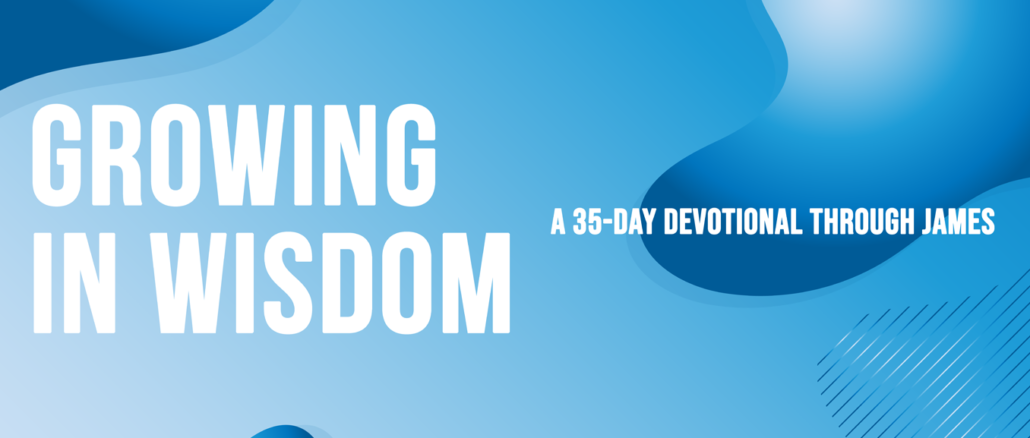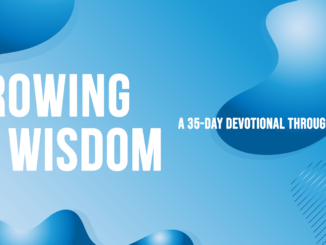
By Randy Harp, Director, Baptist Bible Fellowship International Central Office, Springfield, MO
Read James 1-5.
Note: Yes, you are being challenged to read the entire book of James in one sitting. There are several benefits of reading an entire book of the Bible before you begin an in-depth study of that book or begin a devotional study of that book. A few reasons include:
- You will read the “book,” in this case, a specific letter, as it was originally intended to be read. No one would have received a letter from the half-brother of Jesus and only read one or two sentences out of the entire letter.
- You will allow Scripture to speak for itself. In this devotional series, there are over 30 retired pastors that you will be learning from. I am confident in each of their abilities to teach the Scripture, but there is no greater teacher of Scripture than Scripture itself.
- You will be able to see the larger context in which a passage you may be familiar with is written. You will also be able to recognize specific themes throughout the book.
An average reader can read the five chapters of the book of James in around 15 minutes.
The Book of James is a practical and concise letter written by James, the half-brother of Jesus. Once a skeptic, James was transformed when he encountered the risen Savior. As the leader of the first-century church found in Jerusalem, he writes to the dispersed Jewish believers, offering them heartfelt greetings and encouragement. You can almost feel the emotion of a pastor writing to those who were at one time members of his local church. They were dispersed, or “scattered among the nations,” because of the persecution of the Christians in Jerusalem.
The Book of James is often referred to as the “Proverbs of the New Testament.” It is made up of many short, pithy statements that are full of wisdom and exhortations to the Christian on how to grow in wisdom. While other New Testament letters address theological truths or provide guidelines for church organization, James focuses on how Christians should practically live their lives. It includes more imperatives per word (54 imperatives out of a total of 108 verses) than any other New Testament book. It does not have one singular theme but covers a large variety of subjects, referencing Jesus’ Sermon on the Mount twenty-three times.
His words, which are just as relevant today as when he wrote them, challenge us to evaluate the authenticity of our faith that should be evident in our actions, deeds, and words.
James immediately sets the tone for his readers in their walk of faith, urging them to view trials as opportunities for growth. Our journey in this life is not promised to be smooth but paved with potholes and detours that test our faith. James reminds us that the trials we encounter can develop perseverance, character, and spiritual maturity if we approach them with the right attitude.
As you continue to read, James addresses important topics such as wisdom, faith in action, the power of our words, and caring for those in need. His words, which are just as relevant today as when he wrote them, challenge us to evaluate the authenticity of our faith that should be evident in our actions, deeds, and words. We are forced to look within to see if our faith and works are in true alignment. True faith is not merely an accumulation of intellect but rather an active response to God’s grace.
James warns us against the dangers of favoritism and the pursuit of worldly riches, urging us to live in humble dependence on God rather than on our own strength. He implores us to pray fervently, to seek godly wisdom, and to resist the devil. James encourages us to be mindful of our speech, choosing our words carefully and seeking to build up rather than tear down. He invites us to offer prayerful intercession for others and reminds us of the power of confession, both to God and to one another.
As you begin this devotional study through the Book of James, pray that God will grow your wisdom. Take some time to evaluate your walk with Christ and determine if your faith and your actions are in perfect alignment. Can you claim James 1:22 where you are a doer of the Word and not a hearer only?
Reflective Questions:
- What can you do to prepare yourself to grow in wisdom as you study the Book of James? When and where will you complete this devotional?
- What are you hoping to gain from this study of the Book of James? Write down at least three areas where you hope to grow.
- On a scale of 1 to 10, how closely aligned are your faith and actions? In other words, does your walk match your talk? (1 = faith and actions do NOT match at all, 10 = faith and actions are perfectly aligned).
Memory Verse:
If any of you lacks wisdom, let him ask of God, who gives to all liberally and without reproach, and it will be given to him. James 1:5
Prayer:
Dear God, thank you for Your Word! Thank you for the Book of James. Thank you for the opportunity to learn from Your Word and to learn from the retired pastors and missionaries who provided this devotional. Over the next several weeks, help me to grow in wisdom, to grow in faith, and to grow in my relationship with You.


Thank you for the time and effort to put this together . . . studying this book with friends, is great motivation.